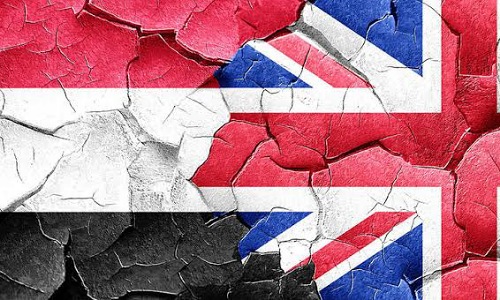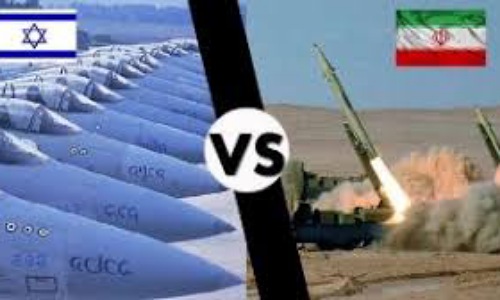International News
Russia’s Withdrawal from Grain Deal Raise Concerns On Asia’s Food Prices
Russia’s withdrawal from the Black Sea grain deal has raised concerns regarding food prices in Asia.
Analysts predict that the exit may lead to higher food prices in the region, but they believe the immediate impact will be limited.
Under the Black Sea deal, Asia received 46 percent of grain and foodstuff shipments, with Western Europe and Africa receiving 40 percent and 12 percent, respectively.
China has been the largest recipient of exports, accounting for nearly one-quarter of the total. Notably, China’s imports included significant amounts of corn, sunflower seed meal, sunflower oil, and barley.
Oksana Lesniak, from the Center for Global Studies Strategy XXI in Kyiv, explained that around 30 percent of China’s corn imports came from Ukraine, serving various purposes like food, cooking oil, and animal feed.
Despite the potential impact on food security in Asia due to rising prices of grains, oilseeds, and vegetable oils, analysts like Pavlo Martyshev from the Center for Food and Land Use Research at Kyiv School of Economics believe that Asian countries, including China, are better positioned than regions like Africa to handle the consequences of the deal’s collapse.
While the end of the grain deal may cause food inflation in the region, it is unlikely to result in a physical shortage of food products. Asian countries possess sufficient financial capacity, distinguishing them from many African nations, ensuring they will have an adequate food supply.
China’s strategy of diversifying its imports, including a 2022 agreement with Brazil to import corn, will help bolster food security. Brazil’s current exceptionally high harvests add to the reassurance that the region can manage potential challenges arising from Russia’s exit from the grain deal.
International News
I Won’t Resign, Says Spain’s PM
Prime Minister Pedro Sanchez of Spain has officially announced that he will not be resigning, bringing an end to a period of intense political speculation.
His declaration, made during a public address on Monday, follows days of uncertainty surrounding his tenure.
Earlier reports had hinted at Sanchez’s potential resignation amidst ongoing investigations into his wife, Begona Gomez’s alleged involvement in influence peddling and corruption.
However, Sanchez clarified that his contemplation of resignation was not driven by political strategy but rather by concerns over growing polarization and the dissemination of deliberate misinformation within the political landscape.
Sanchez passionately addressed the need to combat the degradation of public discourse, stating, “For too long, we’ve allowed toxic methods to corrupt our political and public life, methods that were unthinkable just a few years ago… Do we truly desire this for Spain?”
He emphasized his conviction, declaring, “I have acted with a clear determination: either we declare ‘enough is enough’ or allow this deterioration of public life to shape our future and condemn our nation.”
Sanchez’s choice to remain in office was significantly influenced by a strong demonstration of support at the Socialist Party’s headquarters in Madrid, where enthusiastic supporters passionately chanted, “Pedro, stay!” This outpouring of solidarity occurred shortly after the public prosecutor’s office recommended closing the investigation into Gomez.
Sanchez’s reaffirmation of his leadership role comes at a pivotal juncture as he gears up to guide his party through the upcoming regional elections in Catalonia on May 12.
The Socialists are poised to contest against the pro-independence factions currently holding sway, underscoring the significance of his continued leadership.
International News
UK Imposes Sanctions On Businesses Linked To Sudan Conflict

Britain has taken a decisive stance against the escalating conflict in Sudan by announcing sanctions targeting businesses associated with the warring factions.
Since the outbreak of fighting between rival generals on April 15 last year, the situation has deteriorated drastically, resulting in thousands of casualties and forcing approximately 1.8 million people to seek refuge in neighboring countries.
Aid workers on the ground have painted a grim picture of the humanitarian catastrophe unfolding in the country, with civilians enduring starvation, sexual violence, ethnic killings, and executions.
The UK’s Foreign Office has underscored the severity of the situation, emphasizing that “strict measures” will be implemented, including asset freezes on companies with ties to the Sudanese Armed Forces (SAF) and its rival, the paramilitary Rapid Support Forces (RSF).
British foreign minister David CameronCameron said “We continue to see appalling atrocities against civilians, unacceptable restrictions on humanitarian access and an utter disregard for civilian life.
“The businesses that support the warring parties must be held to account, alongside those responsible for human rights abuses. The world must not forget about Sudan. We urgently need to end the violence.
The sanctions target specific entities, including Alkhaleej Bank, implicated in financing the RSF, and Al-Fakher Advanced Works, a holding company facilitating gold exports for the organization, with proceeds funnelled into weapons acquisition.
Additionally, Red Rock Mining, known for providing funds to the SAF, faces sanctions. The company’s close ties to Defence Industries System, the economic and manufacturing arm of the SAF, further solidify its inclusion in the sanctions, as stated by the Foreign Office.
France, currently hosting an international conference on Sudan, is urging for aid contributions and heightened global attention to address what officials describe as a crisis overshadowed by ongoing conflicts in Ukraine and Gaza.
Will Carter, Sudan country director for the Norwegian Refugee Council, emphasized the dire conditions faced by civilians in the region, including starvation, widespread sexual violence, ethnic massacres, and executions.
According to the UN, over 8.5 million people have been displaced since the onset of the conflict.
The World Health Organization has issued warnings about the country’s collapsing health system, citing acute shortages of medical staff and essential medicines as pressing concerns.
International News
JUST IN: Iran Summons 3 European Ambassadors Over Israel Attack

In response to what it perceives as undue criticism from officials in France, Britain, and Germany, Iran summoned their respective ambassadors to Tehran on Sunday.
The move comes in the wake of Iran’s recent missile and drone strike on Israel.
According to the official IRNA news agency, the Iranian Ministry of Foreign Affairs cited “irresponsible positions” from certain officials in these countries regarding Iran’s retaliation against perceived Israeli provocations impacting Iranian citizens and interests.
The Agency said, “The British, French, and German ambassadors to Tehran were summoned to the Ministry of Foreign Affairs following the irresponsible positions of certain officials of these countries regarding Iran’s response to the actions of the Zionist regime (Israel) against the nationals and interests of our country.”
More to follow…….
















